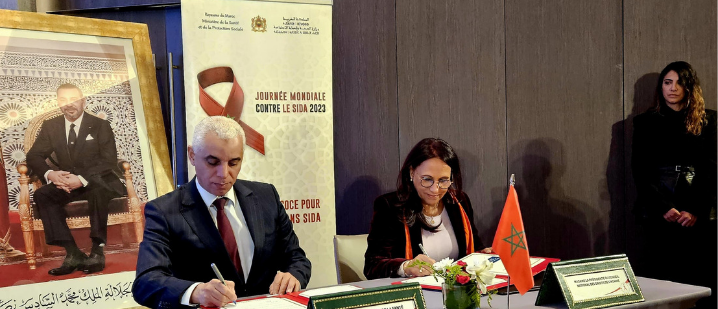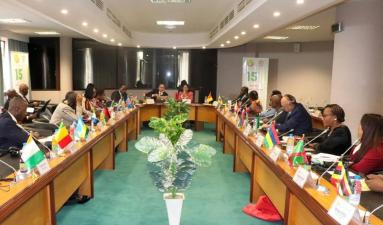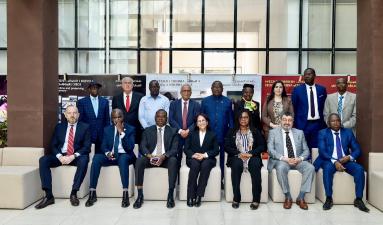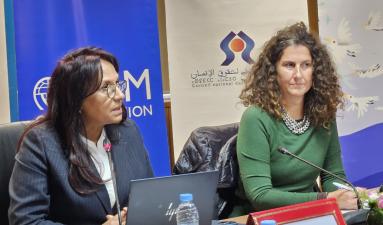- Home
- Our actions
- National
MoU between CNDH and Houses of Representatives and Councillors
Adhering to the 2012 Belgrade Principle, the CNDH signed two Memorandums of Understanding (MoUs) with Houses of Representatives and Councillors.
These memorandums aim at reinforcing a human rights-based approach in various fields, including legislation, monitoring government activities, assessing public policies, parliamentary diplomacy and ensuring the compatibility of the national legal system with the human rights conventions and international humanitarian law ratified or acceded to by Morocco.
The two institutions worked towards updating the MoUs originally concluded in 2017 and 2021.
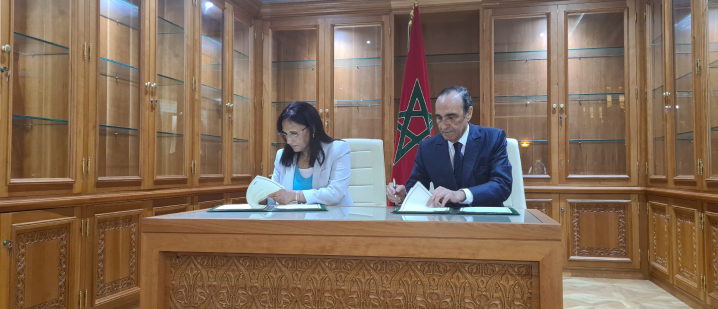
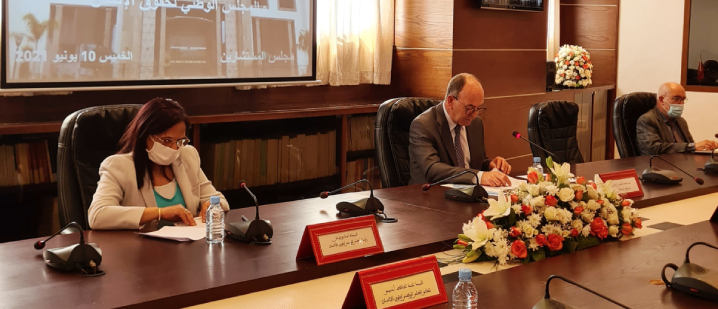
Pagination
CNDH and Government
The National Human Rights Council (CNDH) collaborates with various government sectors, both at the national and regional levels. In this respect, the Council submitted a memorandum to the Head of the Government in October 2021, following the appointment of the new government. This document included proposals and recommendations aimed at enhancing the effectiveness of rights and freedoms within public policies. CNDH Chairperson met with the Head of the Government on the occasion of his appointment by His Majesty the King.
As outlined in Article 35 of the law on CNDH’s reorganization, the Council submits a copy of its annual reports on the human rights situation to the Head of the Government to bring to the government's and relevant public authorities' attention any violations affecting rights and freedoms. The Council calls upon them to address these issues in accordance with national and international obligations and to implement recommendations falling within their purview.
Pagination
Framework agreement between CNDH and Ministry of National Education, Vocational Training, Higher Education and Scientific Research
Ms. Amina Bouayach, Chairperson of the National Human Rights Council (CNDH) and Mr. Saaïd Amzazi, Minister of National Education, Vocational Training, Higher Education and Scientific Research, signed a framework agreement on February 4, 2021, at the Ministry's headquarters in Rabat. The signing ceremony saw the participation of Mr. Driss Ouaouicha, Minister Delegate in charge of Higher Education and Scientific Research, general secretaries of the three departments at the ministry and the President of Mohammed V University in Rabat.
The overarching goal of this framework agreement is to foster cooperation and partnership between universities, regional education and training academies, and between CNDH and its Regional Commissions, across the areas of education, vocational training, higher education and scientific research. The key objectives include promoting the culture of human rights, fostering related fieldwork and advancing education centered on the culture of equality while combating discrimination and stereotypes.
The agreement outlines areas of cooperation and partnership that focus on reinforcing the human rights system and social mediation within educational and vocational training institutions. This participatory approach aims to anchor the values of citizenship, enrich reflections on human rights and promote a culture of tolerance and peaceful debate through school curricula and training programs. The agreement also seeks to provide training for Moroccan and foreign professionals in the field of human rights and encourage relevant cultural and artistic activities.
Pagination
Framework cooperation agreement between CNDH and DGSN
The National Human Rights Council (CNDH) and the General Directorate of National Security (DGSN) signed a framework cooperation agreement focused on embedding the culture of human rights within police training curricula, positioning them as comprehensive guides for law enforcement personnel. It also seeks to support the efforts of security institutions in enhancing professional practices and field interventions, aligning them with both national and international human rights standards.
The agreement's scope encompasses organizing training courses and programs to enhance knowledge and competencies in human rights, benefiting national security officials and personnel. It also involves tapping into experiences and references related to rights, freedoms and institutional activities. Notably, the agreement underscores the integration of the human rights dimension as a foundational element in police training curricula and various professional practices.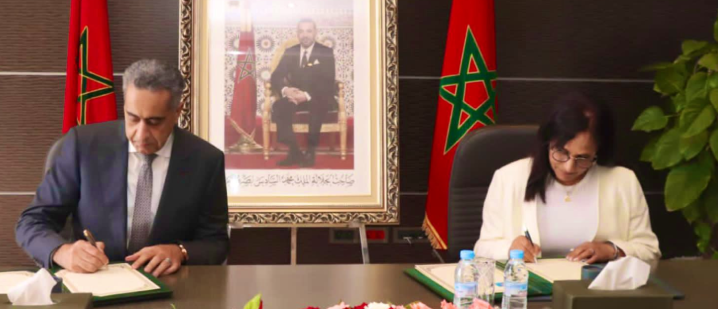
Partnership agreement between CNDH and Ministry of Solidarity, Social Integration and Family
As part of its ongoing engagement with various government sectors, the National Human Rights Council (CNDH) signed a partnership agreement with the Ministry of Solidarity, Social Integration and Family on December 19, 2022. The primary objectives of this partnership include providing legal protection, education, training and support for vulnerable groups, including women and girls. Additionally, it aims to enhance the capacities of officials within the social pole, focusing on human rights aspects and fostering cooperation between the government and the Council’s National Mechanism for the Protection of the Rights of Persons with Disabilities.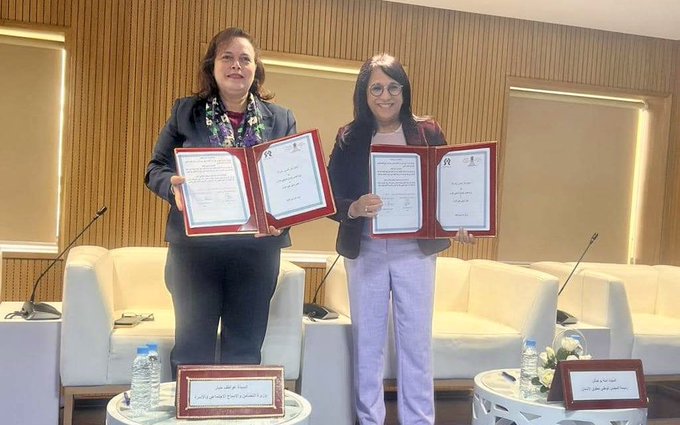
Cooperation between CNDH and the Ministry of Health
Partnership between the National Human Rights Council (CNDH) and the Ministry of Health in advocating for the rights of people living with HIV have progressed through multiple phases. The initial phase spanned from 2013 to 2017, followed by the second phase from 2019 to 2021, with an extension to the year 2023. Notably, on December 4, 2023, this partnership entered a new phase as part of a comprehensive strategy that integrates human rights, HIV, tuberculosis and viral hepatitis throughout the period from 2024 to 2030.